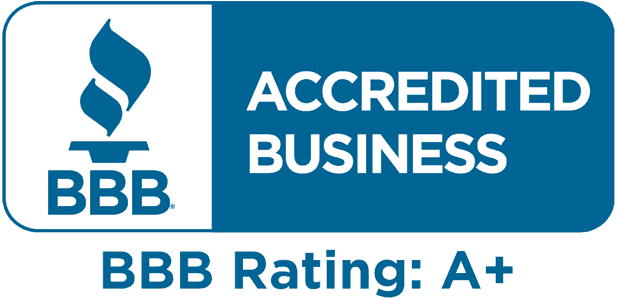Q: Do I need to sign up for Medicare at 65 if I’m still working?
A: Medicare eligibility begins at age 65, and signing up on time can help you avoid premium surcharges. But if you’re working at 65, you get a bit more leeway.
Medicare eligibility starts at age 65. Your initial window to enroll is the seven-month period that begins three months before the month of your 65th birthday and ends three months after it. Seniors are generally advised to sign up on time to avoid penalties that could prove quite costly over the course of retirement.
Specifically, if you fail to sign up for Medicare on time, you’ll risk a 10 percent surcharge on your Medicare Part B premiums for each year-long period you go without coverage upon being eligible. (Since Medicare Part A is usually free, a late enrollment penalty doesn’t apply for most people.) If you’re still working at age 65, however, a different set of rules applies.
No need to double up on coverage
Many seniors are no longer employed at age 65, and thus rush to sign up for Medicare as soon as they’re able. But if you’re still working at 65, and you have coverage under a group health plan through an employer with 20 employees or more, then you don’t have to enroll in Medicare right away.
That said, it often pays to enroll in Medicare Part A on time even if you have health coverage already. It won’t cost you anything, and this way, Medicare can serve as your secondary insurance and potentially pick up the tab for anything your primary insurance (in this case, your work health plan) doesn’t cover.
The only exception is if you’re contributing to a health savings account and wish to continue doing so. Medicare enrollees are not allowed to contribute to an HSA, even if they continue to have coverage under an employer’s HSA-qualified high-deductible health plan.
Your Medicare special enrollment period
If your employer has at least 20 employees and you’re still working and covered under that plan when you turn 65, you can delay your enrollment in Medicare (specifically in Medicare Part B, which allows you to avoid the Part B premium while you’re covered under your employer’s plan). In that case, you’ll get an eight-month special enrollment period to sign up for Medicare if and when you leave your job or your employer stops offering coverage. It will start the month after you separate from your employer, or the month after your group health coverage ends – whichever happens sooner.
Sign up during those eight months, and you won’t have to worry about premium surcharges for being late. And the eight-month special enrollment period is also available if you’re delaying Part B enrollment because you’re covered under your spouse’s employer-sponsored plan, assuming their employer has at least 20 employees.
But note that in either case, it has to be a current employer. If you’re covered under COBRA or a retiree plan, you won’t avoid the Part B late enrollment penalty when you eventually enroll, and you won’t have access to a special enrollment period to sign up for Part B — you’ll have to wait for the general enrollment period instead.
Run the numbers
Though you don’t need to enroll in Medicare at age 65 if you have coverage through a qualified group health plan, doing so might make sense if that plan isn’t heavily subsidized by your employer. Figure out what you’re paying for group health coverage and what your benefits look like under that plan, and then compare it to what you’ll pay under Medicare, taking into account the cost of everything from premiums to coinsurance to deductibles to copays.
Keep in mind that for comprehensive coverage under Medicare, you’ll need a Part D drug plan to accompany Parts A and B. Still, you might find that signing up for Medicare at 65 makes the most sense financially, even if you’re entitled to a special enrollment period later on.
A Second Answer to the Question
This depends on your situation. If you’ve worked at least 10 years (40 quarters) under Medicare-covered employment and paid Medicare taxes during that time, you qualify for premium-free Medicare Part A and will be automatically enrolled at age 65 even if you’re still working. If your spouse has enough employment quarters, you can also qualify for premium-free Medicare Part A based on his or her work history.
Another Medicare eligibility requirement is that you need to be an American citizen or permanent legal resident of at least five continuous years.
If you don’t have enough work history to get Medicare Part A without paying a premium, you can decide to delay enrollment if you already have health coverage through an employer or union (or through your own work or your spouse’s employer). Medicare Part B always comes with a monthly premium, so you may similarly choose to delay your Part B enrollment if you or your spouse are still working and have employer-based group coverage.
Remember, if you don’t sign up for Medicare when you’re first eligible and don’t have other coverage based on current employment, you could have to pay a late-enrollment penalty later when you do enroll. The late-enrollment penalty applies to Medicare Part B (and Part A, if you have to pay a premium for it).
One factor to consider is that even if you have health coverage through your employer or union, Medicare may help pay for some of the costs not covered by your group health plan. For example, enrolling in Medicare may be useful if you work for a small company (less than 20 employees) because Medicare could be the primary payer before your group health insurance. You may want to consult with your employer or union benefits administrator for specifics on how your health coverage and costs may compare with Medicare.
If you do decide to wait until your group coverage ends to enroll in Medicare Part A and/or Part B, you’ll have an 8-month Special Enrollment Period to sign up for Medicare that starts once you stop working or your group coverage ends (whichever happens first). You can also enroll in Medicare at any time that you are still working and have employer-based coverage.
If you choose COBRA after you stop working, do not wait until your COBRA coverage ends to sign up for Medicare. If you delay enrolling in Medicare Part A and/or Part B after your Special Enrollment Period ends, you’ll have to wait until the next General Enrollment Period (January 1 to March 31 every year) to enroll, and you may have to pay a late-enrollment penalty.
Do you have questions about Medicare? Feel free to contact one of The Medicare Store’s licensed insurance agents; see below for that information.



